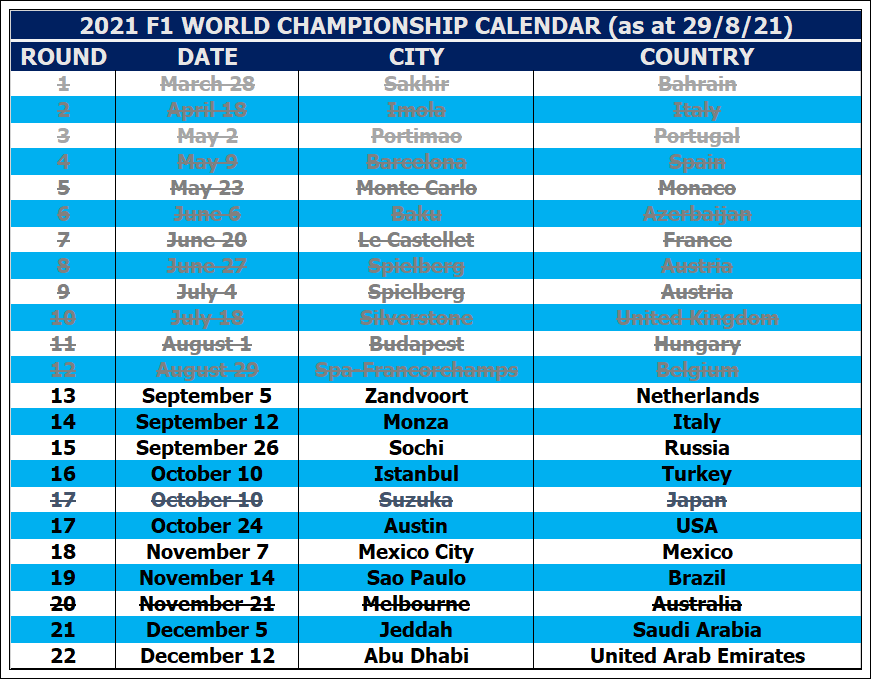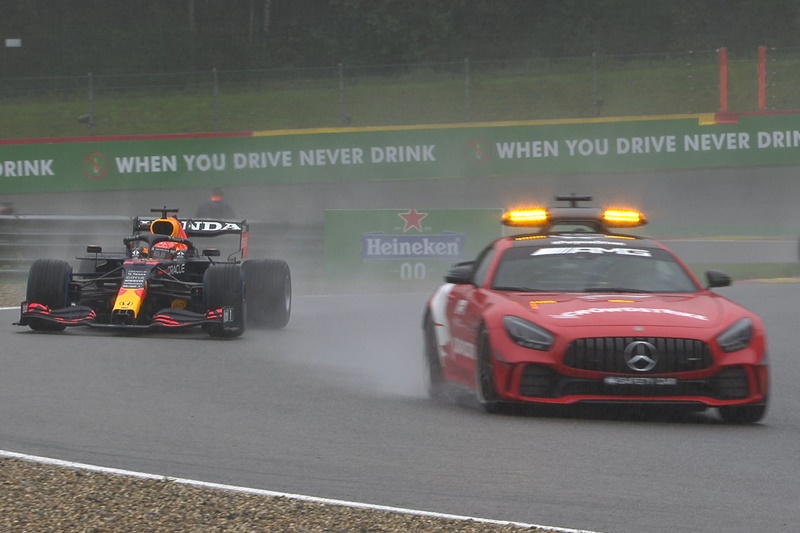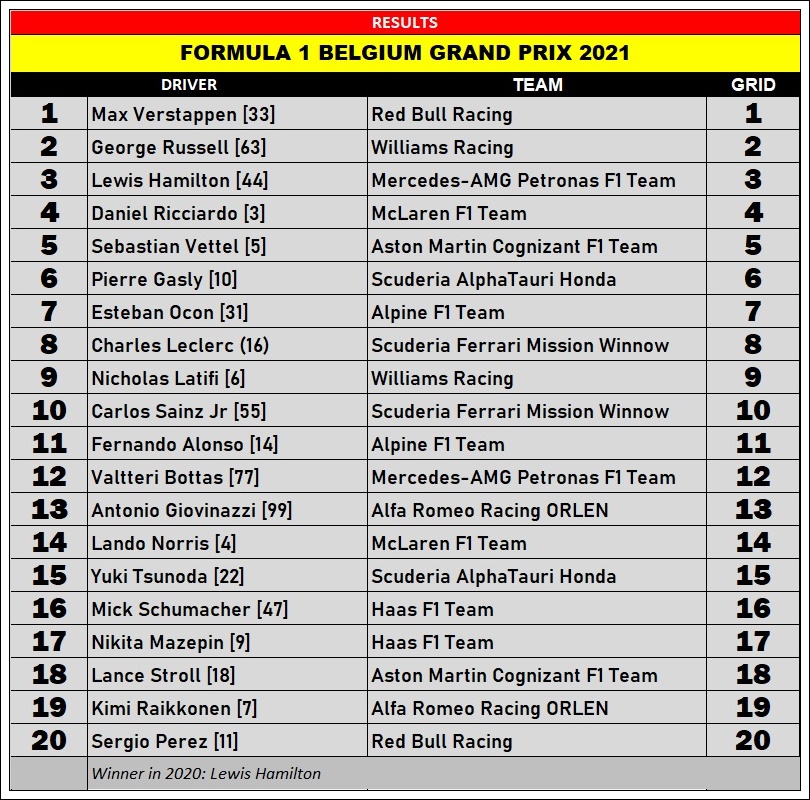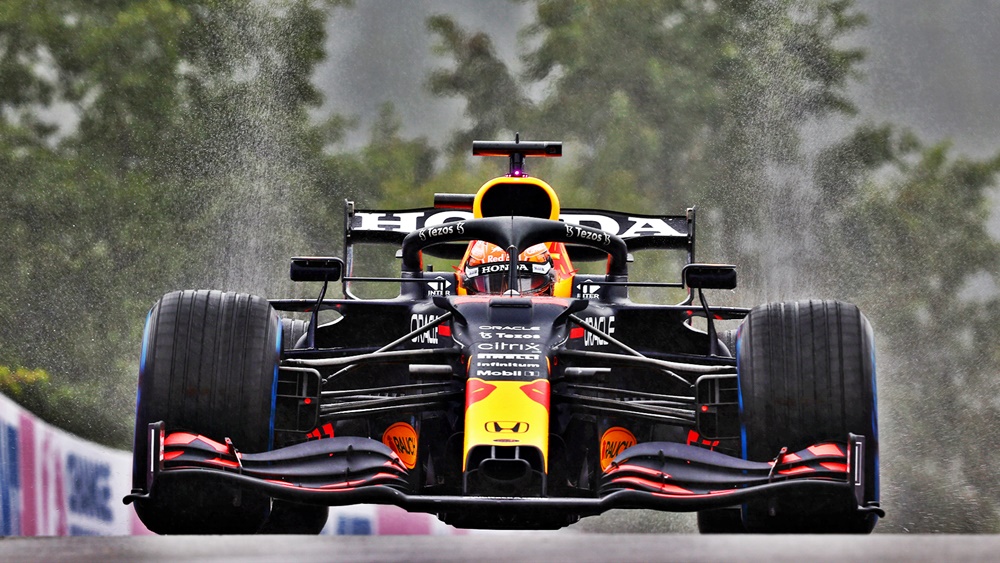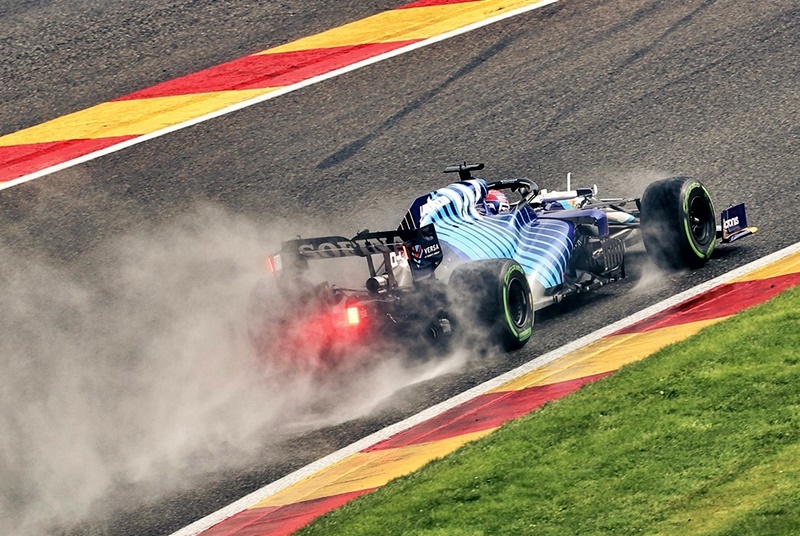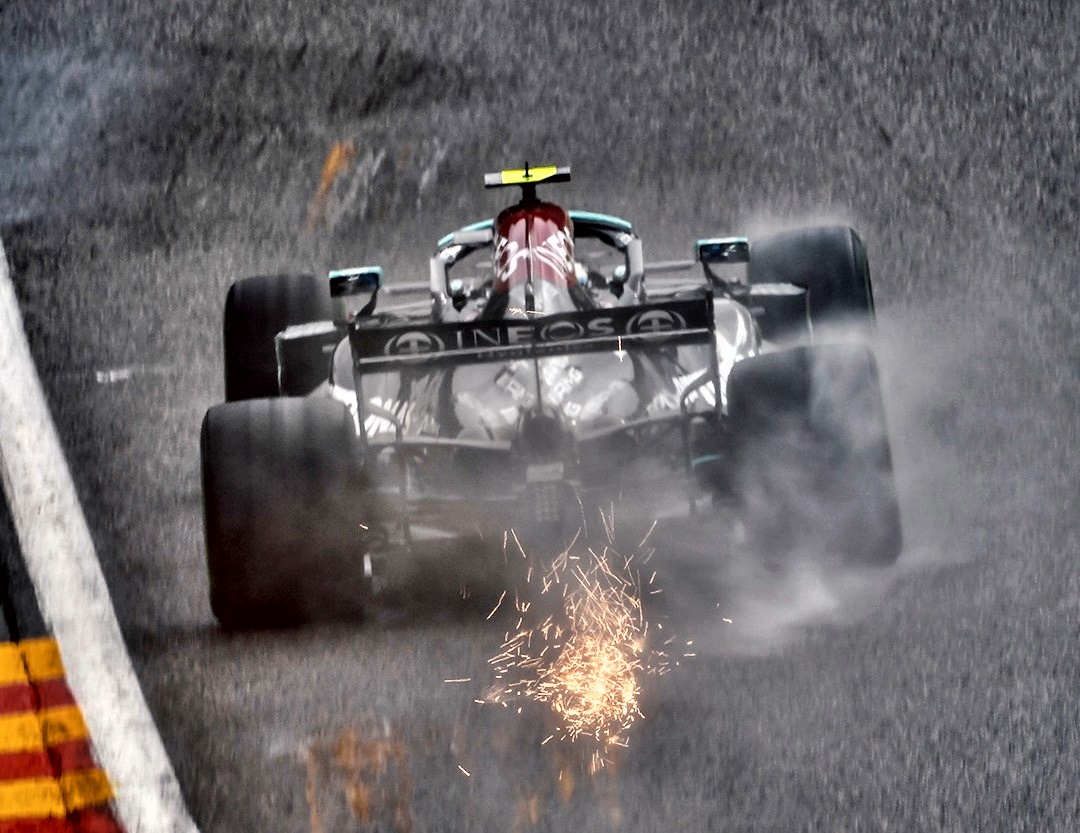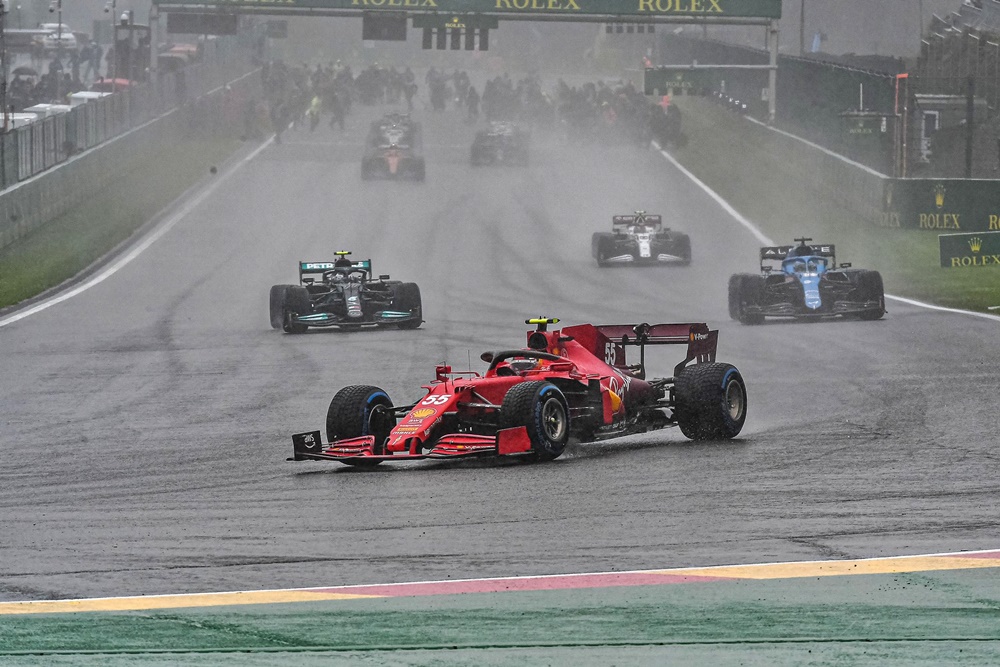Even before the race started, there was already drama as Sergio Perez (Red Bull Racing) aquaplaned and crashed in the wet and slippery conditions on the way to the starting grid. His right suspension was too severely damaged for repairs to be done in time, so he was out.
Valtteri Bottas (Mercedes-AMG) and Lando Norris (McLaren) both had 5-place penalties so they were further down the grid than where the qualifying time had put them. Bottas went to 13th and Norris to 15th, the latter getting a penalty for a gearbox change. Aston Martin’s Lance Stroll was relocated to last as he too had a 5-place grid penalty from the previous race.
As it continued to rain, the start was delayed by 15 minutes and then another 10 minutes more were added, and the 19 cars would do their formation lap behind the red Safety Car from Mercedes-AMG. The conditions were bad enough that the Red Bull boss, Christian Horner, remarked to Sky Sports: “I certainly wouldn’t want to be getting into a car in these conditions. They are very brave.”
28 minutes after the original scheduled start time, the Safety Car led the racing cars out. It was still raining heavily and messages from the drivers indicated that visibility was a problem with all the spray. The situation looked too hazardous and the start process was suspended with the Safety Car leading the convoy back to the pits. There was no official word on what would happen but virtually everyone was in agreement that the conditions were too dangerous for any racing.
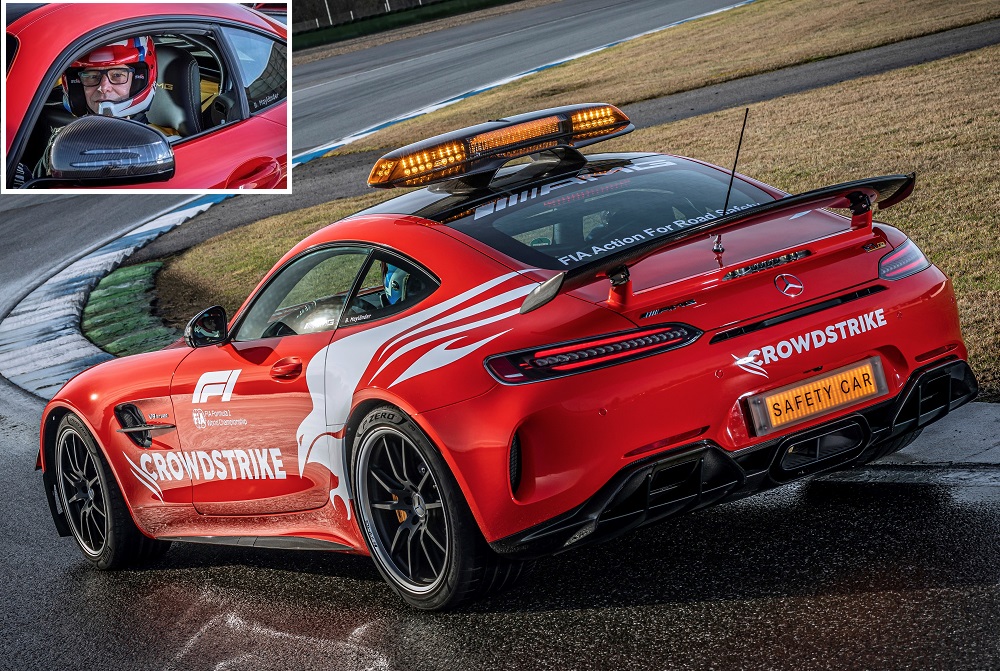
In the Red Bull pits, the crew was frantically working on the Perez’ damaged car in the hope that he could join the race. The team was trying to persuade the Race Director to allow Perez to ‘come back from retirement’ and be allowed to race. In the end, the Race Director allowed Perez to start but he would have to do so from the pit lane (so does Kimi Raikkonen for something else).
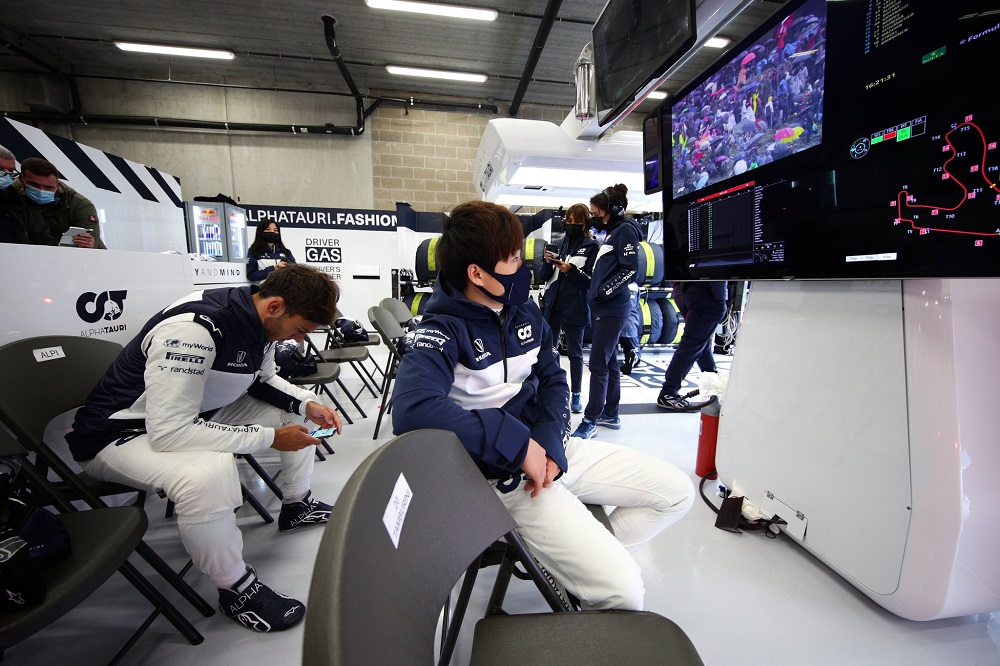
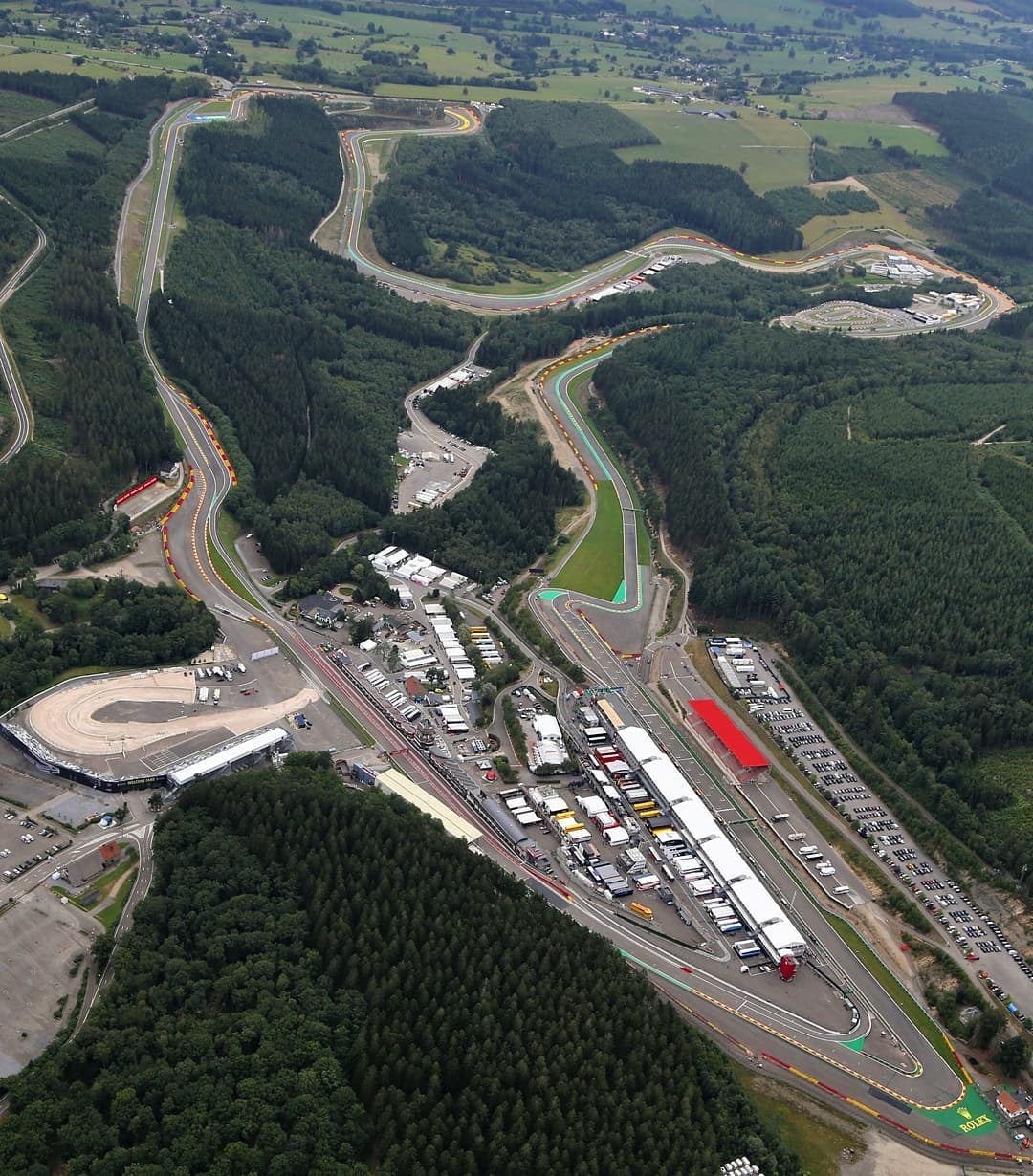
There was discussion about whether the race would be abandoned, or run on Monday. It was interesting that there seemed to be no clear position in rules regarding abandonment of a race due to rain, and how it would be handled. The last two races that had been abandoned due to heavy rain were the 2009 Malaysian Grand Prix at Sepang and before that, the 1991 Australian Grand Prix. Older readers will also remember the horrendous conditions of the 1976 Japan Grand Prix in which championship leader Niki Lauda decided to pull out of the race as he was certain the conditions were too dangerous. The race was not stopped in spite of the rain and was won by Mario Andretti in a Lotus.
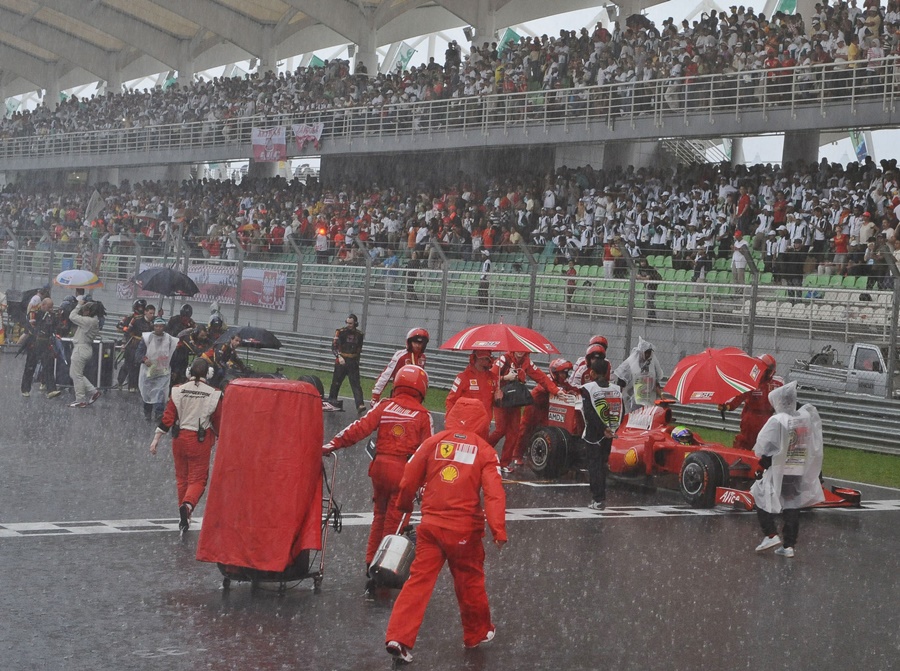
Finally, some 3 hours after the race had been scheduled to start came the news that racing would resume within 17 minutes. The teams hurriedly prepared the cars and the spectators who had been sitting and waiting in the rain cheered as the Safety Car led the field back onto the wet track.
The Safety Car remained in the lead as the first few laps were completed but did not come in, so actual racing was not taking place. The Race Director had declared that it would be a time run but the laps were not confirmed.
And then red flags appeared and the race was stopped, with the cars headed back to the pits. The remaining time in the 1-hour allocation counted down but the conditions remained too dangerous to run in. Anyway, the requisite 2 laps had been done, so half-points could thus be awarded even if the rest of the race did not take place. Some drivers would benefit and some would not, but for George Russell who was right up at the front row, even half-points would be a very good day for the British driver.
The race was not able to resume as the rain just kept falling and the Race Director made the decision to abandon it, with the order on the grid being the order for the results, and half-points allocated. It will be remembered as the shortest F1 race as only around 21 kms had been completed out of the 308 kms had a 44-lap race been run.
